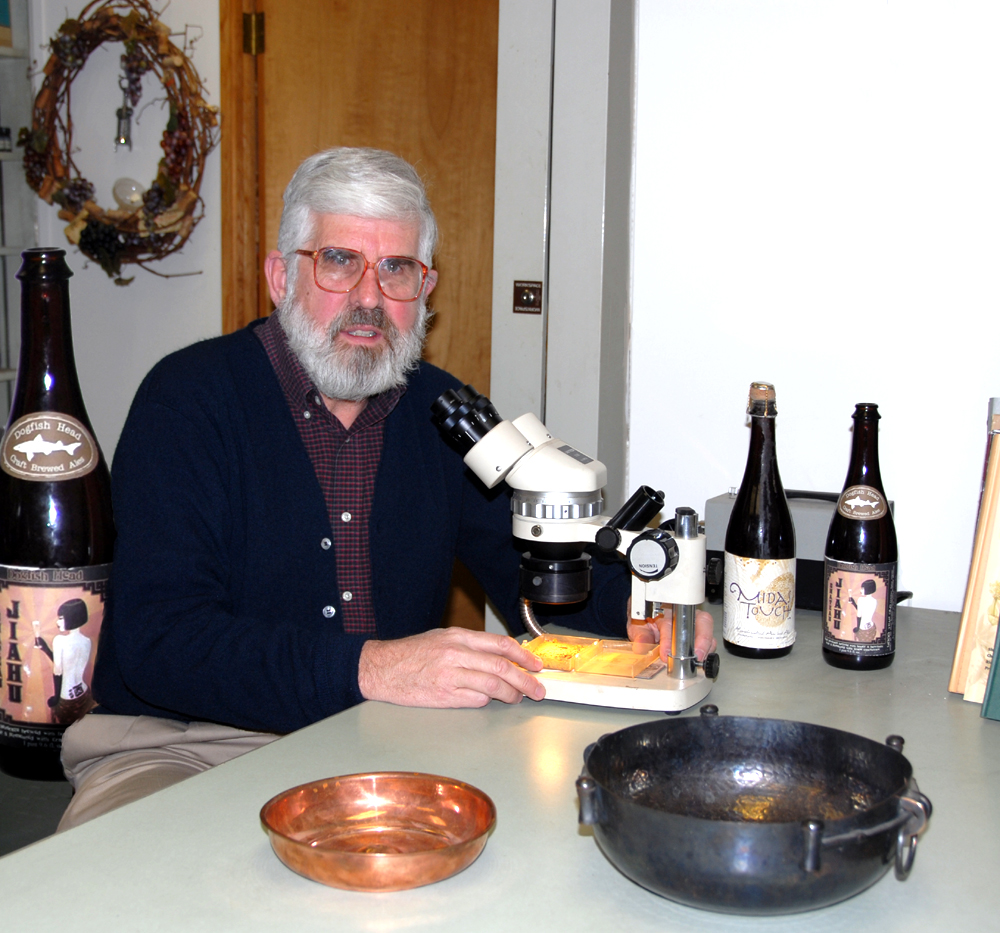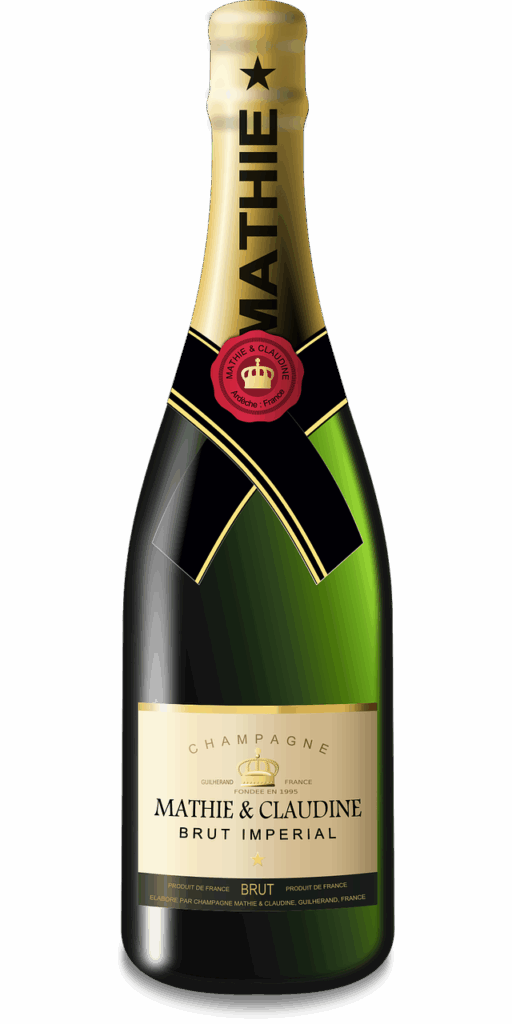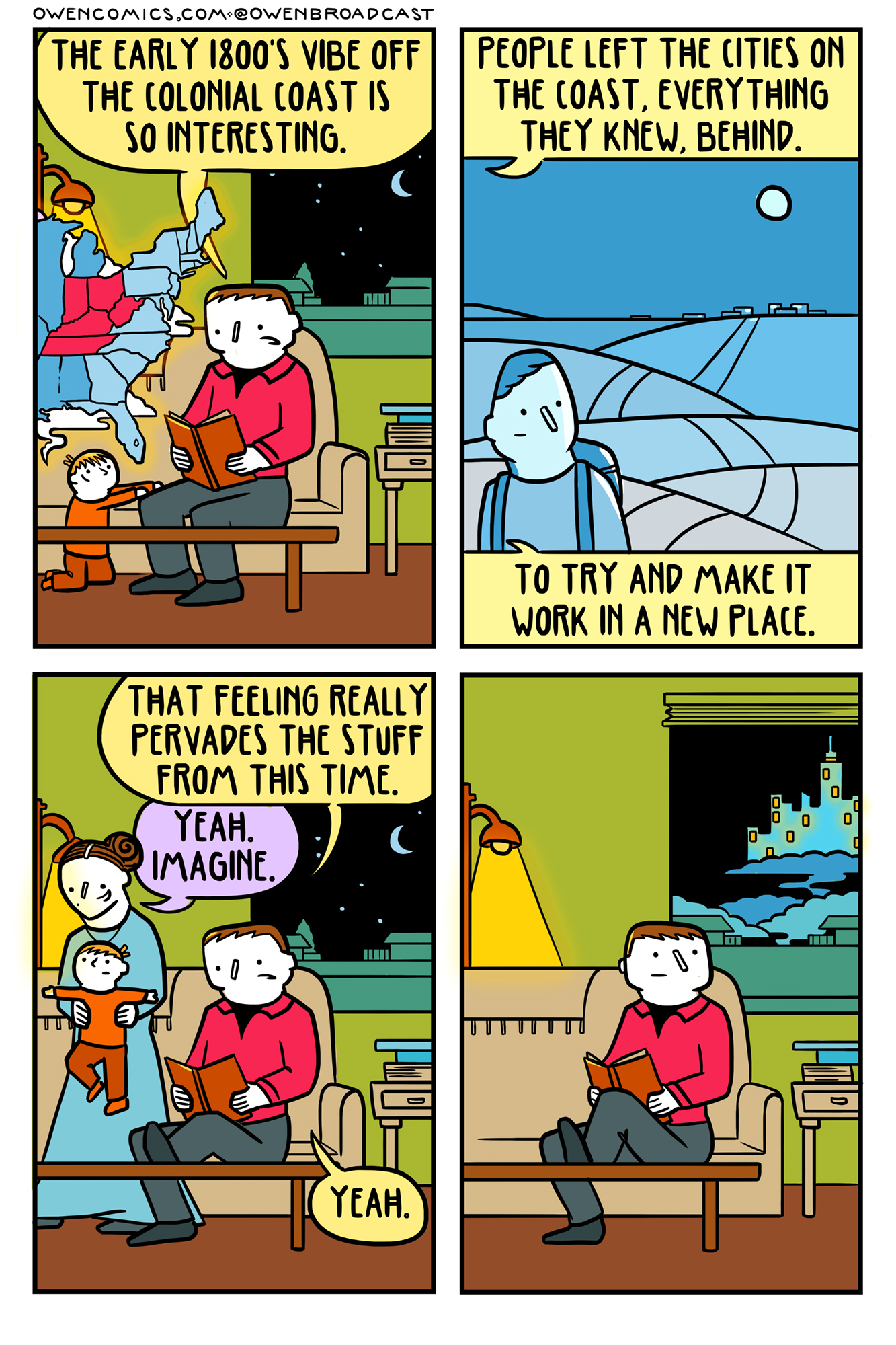
The world of archaeology, and indeed the broader scientific community, mourns the loss of a truly singular figure: Patrick McGovern. Described affectionately as the “Indiana Jones of ancient alcohol,” Dr. McGovern passed away on August 24 at his home in Media, Pennsylvania, at the age of 80. His death, announced by the Penn Museum at the University of Pennsylvania, was attributed to complications from prostate cancer.
Dr. McGovern was an archaeologist whose pioneering work involved the meticulous analysis of ancient cauldrons, pottery shards, and broken bottles. His groundbreaking investigations allowed him to not only discover but also to successfully recreate the alcoholic beverages that were once central to prehistoric civilizations. This included the very booze found within the tomb of the legendary King Midas, a discovery that captivated the imagination of both scholars and the public alike.
His passing marks the end of an era for a field he almost single-handedly brought into existence. Scholars, often with a hint of playful reverence, referred to this new academic discipline as “drinkology,” or sometimes, “dipsology.” For Dr. McGovern, these liquid time capsules were far more than mere curiosities; they represented an overlooked yet profoundly revelatory pathway to connect with and understand long-vanished civilizations, offering insights into their social, religious, and economic lives.

1. **The ‘Indiana Jones of Ancient Alcohol’ and the Birth of ‘Drinkology’**Patrick McGovern’s evocative nickname, the “Indiana Jones of ancient alcohol,” was frequently used in articles detailing his forensic analysis of ancient drinkware. While his appearance, bespectacled and bearded, leaned more professorial than Harrison Ford’s swashbuckling character, his adventurous spirit in uncovering the past through forgotten libations was undeniable. He possessed an intellectual curiosity that drove him to traverse continents, piecing together fragments of history.
This sobriquet, while playful, perfectly encapsulated the blend of rigorous scientific inquiry and adventurous exploration that defined his career. Dr. McGovern was not merely excavating sites; he was unearthing intangible cultural elements, the very spirits that animated ancient societies. His unique approach effectively launched an entire academic subfield, now often referred to as ‘drinkology,’ solidifying his legacy as its seminal figure.
His ability to bridge the gap between hard science and human history, making complex biomolecular archaeology accessible and exciting, was one of his greatest gifts. He demonstrated how a seemingly niche area of study—the alcoholic beverages of antiquity—could illuminate broad aspects of human development. This pioneering spirit made him a captivating figure both within academia and in popular media, inspiring a new generation of researchers.

2. **Pioneering Biomolecular Archaeology and Scientific Methodology**At the heart of Dr. McGovern’s revolutionary work was his innovative application of modern scientific methods to ancient artifacts. As the scientific director of the Biomolecular Archaeology Project for Cuisine, Fermented Beverages and Health at the Penn Museum, he employed sophisticated techniques, including multiple forms of spectrometry. These tools were crucial for identifying unique biomarkers in the residue left within primitive drinking vessels.
His process involved working with minuscule amounts of chemical, botanical, and archaeological data, as he once explained to National Geographic magazine in 2016. He meticulously searched for principal ingredients, asking fundamental questions: “Does it have a grain? A fruit? An herb?” This detailed forensic approach allowed him to reconstruct the precise chemical fingerprints of ancient drinks, revealing their components and production methods with unprecedented accuracy.
This methodology transformed archaeological residue analysis from a qualitative observation into a precise scientific discipline. By focusing on the molecular evidence, Dr. McGovern provided concrete data that could verify or challenge existing historical assumptions. His rigorous scientific underpinnings lent immense credibility to his often-astonishing discoveries, allowing him to rewrite significant portions of human culinary and social history.

3. **The World’s Oldest Alcoholic Beverage: Jiahu, China**Among Dr. McGovern’s most celebrated findings was the discovery of what is believed to be the world’s oldest alcoholic beverage. Unearthed from pottery shards dating back 9,000 years to a Neolithic village in Jiahu, China, this ancient concoction was a complex mix. It contained fermented rice, honey, and hawthorn fruit, a small red berry.
This discovery was not merely about age; it provided critical insights into the sophistication of Neolithic fermentation practices. The combination of multiple ingredients indicated a deliberate and advanced understanding of brewing and flavor development thousands of years ago. It challenged previous notions about the simplicity of early human diets and practices, revealing a more complex relationship with food and drink.
The Jiahu beverage stands as a testament to humanity’s enduring ingenuity in harnessing nature’s offerings for both sustenance and pleasure. This single discovery fundamentally shifted the timeline of known alcohol production, pushing back the origins of fermented beverages by thousands of years and providing a tangible link to our ancient ancestors’ tastes and rituals.
4. **Unearthing the Origins of Wine: Georgia and Hajji Firuz**Beyond beer and mixed brews, Dr. McGovern also made monumental contributions to understanding the origins of viticulture. He identified the world’s oldest grape wine, dating its existence to between 6,000 and 5,800 B.C. This significant discovery was made in Georgia’s South Caucasus region, a geographical area now recognized as a cradle of winemaking.
His research also demonstrated the presence of wine residues in pottery from Hajji Firuz in Iran, dating to approximately 5400 BC. These findings collectively pushed back the accepted timeline for the origins of viniculture, revealing that grape fermentation was a developed practice far earlier than previously understood. It underscored the deep historical roots of wine production in the Near East.
These discoveries provided compelling evidence for the deep connection between early human settlements and the cultivation of grapes for winemaking. Dr. McGovern’s work helped to trace the geographical spread and cultural significance of wine, from its earliest known origins to its subsequent role in shaping human societies across continents, establishing it as a truly ancient beverage.

5. **The Mystery of King Midas’s Funerary Feast**One of Dr. McGovern’s most captivating projects involved unlocking the secrets of a royal banquet. From 157 bronze vessels recovered from the tomb of King Midas in Gordion, Turkey, he meticulously identified the components of a distinctive beverage. This concoction was composed of barley beer, grape wine, and honey mead, an extraordinary mix for its time.
Given the close proximity of these drinkware vessels to the king’s body, Dr. McGovern theorized that this particular mixture was likely consumed during King Midas’s funerary feast. This practice resonated with modern customs, suggesting a parallel to an Irish wake, where beverages are shared to commemorate the deceased. Such insights humanized ancient rituals, making them relatable across millennia.
This specific discovery was a powerful illustration of how ancient civilizations engaged in celebratory and commemorative drinking, much like people do today. It highlighted alcohol’s role in significant life events, from rites of passage to religious ceremonies. The ability to reconstruct the actual drink provided a sensory bridge to the past, allowing us to imagine participating in a royal funerary rite of thousands of years ago.

6. **Alcohol’s Central Role in Ancient Civilizations**Dr. McGovern consistently emphasized that fermented beverages were not peripheral but central to human societies throughout history. He told NPR in 2017, “Just about every culture you can think of, they have a fermented beverage that’s central to the social activity, religions, and a lot of times, it becomes economically very important.” This holistic view allowed him to highlight alcohol’s pervasive influence.
He frequently expressed surprise that many historical accounts, even those covering the Paleolithic era or more recent history, often overlooked the discussion of fermented beverages. To him, this omission was a significant gap in understanding the full tapestry of ancient life. He sought to rectify this, illustrating how crucial these liquids were to daily existence and cultural practices.
One particularly vivid example he cited was the role of beer in the construction of the pyramids. As he noted in Smithsonian magazine, each worker received a daily ration of four to five liters, essentially “beer for pay.” He added, “You would have had a rebellion on your hands if they’d run out. The pyramids might not have been built if there hadn’t been enough beer.” This anecdote powerfully conveys the economic and social leverage of alcohol in ancient times.

7. **The Drive to Recreate History: From Residue to Brew**Discovering the chemical signatures of ancient spirits was, for Dr. McGovern, only half the journey. He possessed a unique and profound desire to actually taste these historical concoctions, to experience the liquid time capsules firsthand. This yearning for a tangible connection to the past set his work apart from purely academic analysis.
This personal quest led to an extraordinary collaboration in 2000, when the Penn Museum hosted a dinner honoring the beer writer Michael Jackson. Amidst dozens of microbrewery owners and flowing beer, Dr. McGovern issued a challenge: who among them could recreate the King Midas drink? He questioned, “Was it even possible to make something drinkable from such a weird concoction of ingredients?”
To his surprise and delight, more than 20 brewers appeared at his lab the next morning, eager for details on how to “reverse-engineer such a beverage.” He acknowledged that an exact recipe was impossible, thus encouraging them to tinker to achieve something palatable. This ambitious project marked a pivotal moment, blurring the lines between historical research and contemporary culinary art, and breathing new life into ancient flavors.

8. **The Triumph of Recreation: Dogfish Head and Midas Touch**The challenge issued by Dr. McGovern to recreate King Midas’s funerary beverage was met with an enthusiastic response. Brewers from around the nation gathered, driven by a shared curiosity and the prospect of breathing life into a millennia-old recipe. This ambition culminated in a pivotal partnership with Sam Calagione, the visionary founder of Dogfish Head Craft Brewery in Milton, Delaware.
Calagione, utilizing Dr. McGovern’s meticulous research, crafted a modern rendition known as Midas Touch. This innovative brew incorporated “the finest Greek thyme honey,” Muscat grapes, which DNA evidence suggested were among the earliest grape varietals in the Middle East, and 2-row barley. Given the absence of precise details regarding ancient yeast, Calagione employed a dry mead yeast to ferment the distinctive ingredients of this extreme beverage.
The successful re-creation was unveiled at a special event at the Penn Museum, mirroring the ancient King Midas funerary ceremonies. Dr. McGovern lauded the result as “extremely aromatic, yet well-balanced,” noting how “the wine, beer, and mead accented one another without dominating.” This collaboration not only yielded a commercially successful product but also forged a tangible link between ancient history and contemporary culinary artistry, allowing modern consumers to taste a piece of the past.
9. **Expanding the Ancient Brews Portfolio: Chateau Jiahu and Theobroma**The success of Midas Touch paved the way for further collaborations between Dr. McGovern and Dogfish Head Craft Brewery, expanding the range of ancient beverages brought back to life. These ventures allowed for the broader public to experience more of his profound archaeological discoveries, transforming academic insights into consumable history.
Among these subsequent creations was Chateau Jiahu, a beer directly inspired by Dr. McGovern’s discovery of the world’s oldest alcoholic beverage from Neolithic China. This brew aimed to replicate the ancient mixture of fermented rice, honey, and hawthorn fruit, providing a sensory journey back 9,000 years to the origins of human fermentation. It offered a unique opportunity to taste the ingenuity of our ancient ancestors.
Another notable recreation was Theobroma, a beverage based on Dr. McGovern’s research into cacao-based drinks from Mesoamerica, dating back to 1400 BC. These commercial ventures underscored his belief that such drinks “reflect how our species has developed on this planet — by taking whatever we can in nature and making it into something really good.” They ensured his archaeological findings resonated far beyond scholarly circles, solidifying his legacy in both historical and contemporary contexts.
10. **An Unconventional Academic Journey: From Chemistry to Theology to Archaeology**Patrick McGovern’s academic trajectory was as multifaceted and adventurous as his archaeological expeditions. His intellectual curiosity was boundless, leading him through a remarkably diverse educational path that defied conventional specialization. He embarked on his higher education at Cornell University, where he earned a degree in chemistry in 1966, laying a strong foundation in scientific inquiry.
Following his undergraduate studies, Dr. McGovern pursued graduate work in neurochemistry at the University of Rochester Brain Research Center, initially intending to become a physician. This period immersed him deeply in the biological sciences, further honing his analytical skills. However, his intellectual explorations did not cease there, as he then pursued graduate degrees in sacred theology and divinity.
This seemingly disparate blend of scientific and theological studies reflected a profound internal quest. As he once explained to WHYY public radio in 2012, he could “never really resolve whether I wanted to do science or humanities.” This unique synthesis ultimately led him to archaeology, a field where he could integrate rigorous scientific methods with a deep inquiry into human history and culture, earning his doctorate from the University of Pennsylvania in 1980.
11. **The Interdisciplinary Scholar: Bridging Science and Humanities**Dr. McGovern’s distinct academic background was not merely a personal anecdote; it became the bedrock of his groundbreaking interdisciplinary approach. His ability to navigate between the precise methodologies of the physical sciences and the interpretive nuances of the humanities was exceptional. This unique perspective allowed him to pioneer biomolecular archaeology, effectively bridging disciplines that had often remained separate.
At the Penn Museum, where he served as the scientific director of the Biomolecular Archaeology Project for Cuisine, Fermented Beverages and Health, he seamlessly integrated his expertise. He applied sophisticated scientific techniques, such as chromatography, spectroscopy, and DNA analysis, to ancient artifacts, transforming archaeological residue analysis into a rigorous scientific endeavor. This integration allowed for unprecedented accuracy in identifying ancient ingredients and production methods.
Beyond his directorship at the museum, Dr. McGovern also taught as an adjunct professor of anthropology at the University of Pennsylvania. This role further solidified his position as a bridge between scientific research and broader anthropological understanding. His colleagues frequently described him as both rigorous and imaginative, qualities that stemmed from his willingness to cross traditional disciplinary boundaries, making him a truly unique figure in archaeology.
12. **A Prolific Author and Communicator: His Literary Legacy**Beyond the laboratory and excavation sites, Dr. McGovern was a highly prolific author and an articulate communicator of his discoveries. He understood the importance of disseminating his findings to both academic peers and the wider public, making complex scientific and historical information accessible and engaging. His literary output stands as a testament to his dedication to sharing the rich tapestry of ancient alcohol’s history.
His acclaimed books include “Ancient Wine: The Search for the Origins of Viniculture,” published in 2003, which meticulously traced the deep historical roots of grape fermentation. This was followed by “Uncorking the Past: The Quest for Wine, Beer, and Other Alcoholic Beverages” in 2009, a work that received an award from the Archaeological Institute of America, showcasing his comprehensive exploration of ancient fermented drinks.
His 2017 book, “Ancient Brews: Rediscovered and Re-Created,” offered detailed insights into the process of bringing historical concoctions back to life, reflecting his profound desire to taste the past. In addition to these seminal works, Dr. McGovern authored or co-wrote eight other books and over 150 peer-reviewed articles for prestigious journals such as Nature and the Proceedings of the National Academy of Sciences. This extensive body of work solidified his legacy as a leading authority and a compelling narrator of ancient history.

13. **The Philosophical Underpinnings: Alcohol, Society, and Human Evolution**For Dr. McGovern, the study of ancient alcoholic beverages transcended mere chemical analysis; it was a profound inquiry into the very essence of human civilization. He consistently articulated a philosophical perspective that viewed fermented drinks not as a frivolous side note, but as fundamental to the development of human societies. He often expressed surprise at their omission from many historical accounts, recognizing this as a significant oversight.
He told NPR in 2017 that “just about every culture you can think of, they have a fermented beverage that’s central to the social activity, religions, and a lot of times, it becomes economically very important.” This conviction drove his work, demonstrating how alcohol played critical roles in everything from daily sustenance and religious ceremonies to economic systems and social cohesion. Ken Schramm, a mead cofounder, affirmed that Dr. McGovern “understood better than anyone, and at a molecular level, the critical role that wine, beer, mead, and their various combinations played in how we became the civilization that we are now.”
Moreover, Dr. McGovern ventured into the more primal aspects of human interaction, suggesting that alcohol served as “social lubrication.” He mused that “if you want to have a good time,” or “if you want to up your sexual relations and so produce more children, then alcoholic beverages help.” His insights presented alcohol as a powerful, ancient force that shaped human behavior, rituals, and even demographic trends, fundamentally influencing “what man’s place in the universe was, how we got here” and how it “makes us who we are in a lot of ways.”
14. **An Enduring Legacy: Demystifying History and Inspiring Future Generations**Patrick McGovern’s enduring legacy is multifaceted, extending far beyond his individual discoveries and publications. He possessed an innate intellectual curiosity that propelled him to uncover previously unknown facets of human history, transforming the study of ancient drinks into a vibrant and academically rigorous field. His ability to humanize the past, making it relatable through the sensory experience of ancient flavors, was one of his most remarkable contributions.
By demonstrating that people thousands of years ago engaged in celebratory and commemorative drinking, much like people do today, he helped to demystify history. He showed that ancient life was far from sterile, revealing the shared human experiences and impulses across millennia. This approach made history a “much more vibrant place,” inspiring both scholars and enthusiasts to look at the past with fresh eyes.
His passion for discovery was palpable, and he described the prospect of uncovering something new as a profound motivator. “Just the prospect of discovering something new, that’s what really drives me,” he told NPR, adding, “Every time you discover something, you get, like, a high. I think it’s the best high in the world.” Dr. McGovern’s pioneering spirit, his dedication to interdisciplinary research, and his infectious enthusiasm will undoubtedly continue to inspire future generations to unearth the liquid time capsules that connect us to our ancient ancestry.
Read more about: Michael Seltzer, Pioneering Philanthropist and LGBTQ+ Advocate, Dies at 78: Decades-Long Fight Against AIDS Remembered
The passing of Patrick McGovern marks the end of an extraordinary career, but his impact on archaeology, culinary history, and our understanding of human civilization will resonate for generations to come. He was a scholar who not only brought ancient drinks to light but also illuminated the profound ways in which they shaped who we are today.









